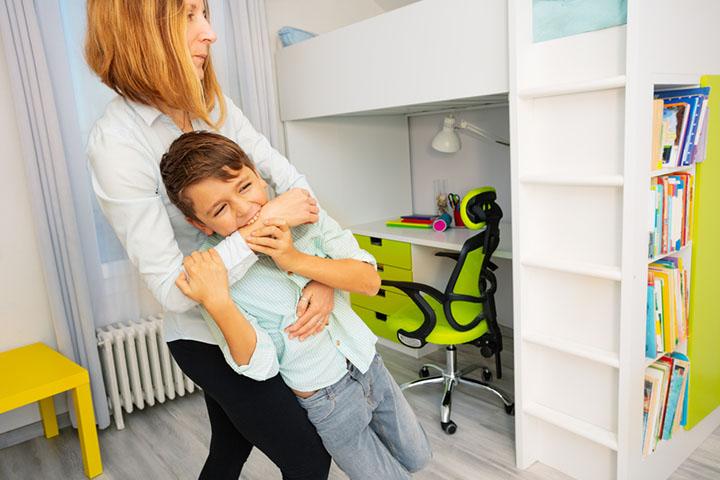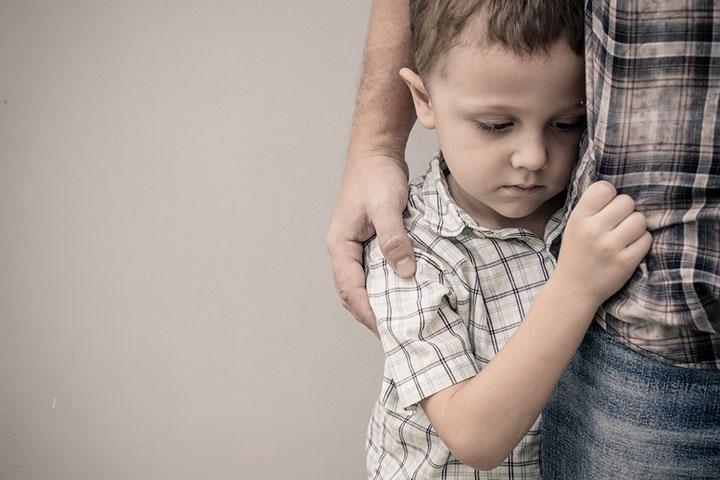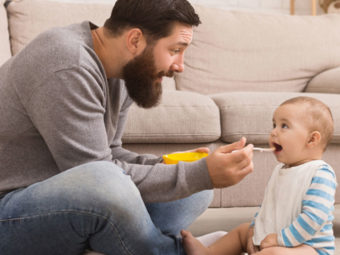
Image: Shutterstock
Every parent wants a child who is obedient and respectful. We want them to behave well and listen to us when we say something important. But kids often have a mind of their own and as they grow, they care less and less about doing what they are told. This has more to do with testing the parent’s boundaries than anything else. And usually, when they face suitable consequences for their actions and are disciplined appropriately, they “settle down”. But most parents don’t know the right strategies to use in order to discipline their kids properly. They say the first thing that comes to mind. And although you may think you’re doing your best under duress, you may actually be making matters worse for yourself and your child. So, if you want to know all the things you should avoid saying to your kid when they need to be discipled, we’ve got a list. Read on to know them all!
1. Get It Out Of Your System
Image: Shutterstock
Kids, especially toddlers, aren’t known for their impulse control. And sometimes they have compulsions that they can’t really explain. They may be unable to curb the urge to throw toys up in the air, make annoying high pitched sounds, and run around the house naked. Sometimes, parents try their best to get a hold of the situation and when they realize that threatening or running after their kid does nothing, they simply allow them to continue with the behavior so that they can “get it out of their system.” But this is not a concept that will work out well in the long run.
The problem is that your child’s brain is not wired that way. Allowing them to run around the house naked until they’ve exhausted themselves is not going to decrease their desire to do it again. In fact, it will most likely do the opposite. You are simply indirectly reinforcing the negative behavior by allowing it to continue without dolling out any consequences. A better idea would be to practice the positive-opposite behavior. That might be encouraging a kid to run around in their underwear or pajamas. Or you could challenge them to keep their clothes on because that’s what big kids do. This way you reinforce the positive behavior and not the negative one.
2. Stop Being Shy
Image: Shutterstock
Some kids are simply more reserved and introverted than others and there’s nothing wrong about it. If you’re out attending a gathering and your child isn’t being forthcoming, it isn’t because they want to come off as disinterested or disrespectful. Most of the time, they may just not know what to do around a third party. Sure they may be energetic and loud around you, but to expect that of them around people they don’t know is unfair. Not all kids are outgoing and there is no way to make your child more outgoing.
Telling your kid to stop being shy will only make them more anxious and self conscious while around other people. Instead, let your child hover in the background until they want to interact with their environment. You can always explain that your little one takes a while to warm up to new situations and people. This way, the child will start to relax more quickly and soon mingle with people without feeling pressured by you.
3. If You Really Love Me
Image: Shutterstock
Emotional blackmail is not the way to get your way. In fact, this may be the worst tool you can use to get your child to act the way you want them to. Keep in mind that there is a fine line between guilt and coercion. Guilt is a necessary and healthy emotion when it moves a person toward reparations. But guilt also requires empathy, where your child realizes that their actions have caused someone else pain. Parents can point out this feeling of grief to help kids understand why they shouldn’t hurt others. But you must never cross the line and start to question the love your child has for you simply because they won’t do what you say.
Unconditional love is what helps your child build security and trust in their relationship with you. So, if you shake this foundation they will lose their trust in you. After a certain point, they won’t care for your approval and love, which can lead to even more bad behavior and feelings of anger. Your child will be far more inclined to do what you say when they know that you have their best interests at heart. You do this by looking out for your child and giving them a valid reason as to why you don’t want them to engage in certain behaviors.
There are better ways to discipline and get through to your kids than using these three harmful phrases. Make sure you find healthier ways to work with your child so that their positive behaviors are reinforced by you.
















